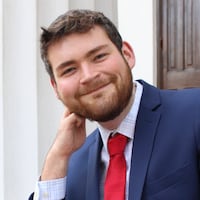Peachtree Corners plans to push millions of federal relief dollars out to businesses, nonprofits and residents that experienced hardships caused by the COVID-19 pandemic.
On Tuesday, City Council signed off on allocating $16.4 million from the American Rescue Plan Act toward several categories. The city received some of the relief funds this July, expecting the rest to drop next year around the same month.
The dollars allocated for each category are estimates, as the numbers could shift based on demand, said City Manager Brian Johnson. Some categories will be funded with both installments, while others will be funded with only the first or second.
Peachtree Corners is one of the first Gwinnett cities to officially decide how they’ll spend the funds. City officials felt a sense of urgency to get the money out to the community before it’s too late for some organizations and residents to bounce back, Johnson said.
“Every day we move forward, our hope is that it’s a day that’s a little bit better than yesterday,” Johnson said. “Let’s get the money out now to prevent any other companies from going out of business.”
Most of the dollars will be put toward grant programs for nonprofit and for-profit organizations. After proving revenue loss or other financial challenges caused the pandemic, the city will distribute funds to help organizations cover capital or operational costs.
The city tentatively expects to award about $4 million in capital grants and about $3 million in operating grants to organizations over the next couple of years.
Officials plan to launch a shop local incentive program, in which consumers would be rewarded through an app for shopping at local businesses. Users could get reimbursed after earning enough points, which the city expects to fund with about $300,000 of the relief funds.
Other funds will be put toward bettering underserved areas, mostly located in the southern half of the city going toward Norcross and Doraville. Officials foresee dedicating $5.25 million to its Urban Redevelopment Authority for projects that would enhance these areas, Johnson said.
More than $1 million could go toward expanding access to broadband service by replacing the light bulbs in streetlights with ones that have wireless capabilities, Johnson said. The bulbs would create a Wi-Fi hotspot, to which residents in the immediate area could connect, he said.
The Curiosity Lab, the city’s publicly funded innovation center, stands to receive about $400,000 for programs that would offer professional services to local businesses and help underserved minority communities, Johnson said.
Thousands of dollars will also be allocated to help residents who struggled to pay their utility bills during the pandemic. Property owners will also receive assistance to address code violations on their property.
More than $1 million will be used to offset revenue loss in the city, Johnson said. The city will use some of the funds to pay a consulting firm to manage the grant disbursements.
“We could have certainly had a lot more of our own projects, but that wasn’t what mayor and council wanted,” Johnson said. “People are hurting. We have some resources to get them, and hopefully our local economy is stronger as a result.”
Residents and organizations will be apply for the funds in a few weeks, Johnson said, and the city will likely start writing checks as early as November. Anyone who requests assistance will need to provide documentation that proves the hardship took place from March 2020 to now as a result of the pandemic.
The last round of federal pandemic relief funds, dubbed CARES, was quickly shared by local governments with businesses struggling on the heels of shutdowns and reduced traffic. Officials will have until 2024, as opposed to months, to use the new funds.
More than $861.8 million will be divided among Georgia cities with fewer than 50,000 residents as part of President Joe Biden’s $1.9-trillion stimulus package. Local government can use the dollars in a variety of ways such as replacing revenue loss, funding COVID-19 mitigation efforts or investing in water, sewer and broadband infrastructure.
How funds will be spent in Peachtree Corners
- Note: Allocation totals are subject to change
- Operating grants: $1.5 million for nonprofits and $1.5 million for for-profits
- Capital grants: $2 million for nonprofits and $2 million for for-profits
- Broadband infrastructure to underserved areas: $1.5 million
- Shop local incentive program: $300,000
- Nuisance abatement program: $100,000
- Utility assistance program: $250,000
- Curiosity Lab: $400,000
- Urban Redevelopment Authority: $5.25 million
- Revenue loss reimbursement for the city: $1.5 million
- Grant management: $100,000
About the Author
Keep Reading
The Latest
Featured

